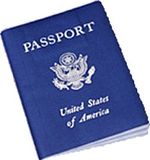After spending many thousands of dollars to get a work visa and then a Green Card in order to stay in the United States, it was amazingly simple to become a United States citizen when I finally became eligible.

When I applied for United States citizenship eight years ago I did not need a lawyer to help me, didn't need to take any classes, or study from any books. I think things have become a little tougher since 9/11, but there are lots of free resources such as public library
websites or
community based organizations. Even the US government
provides information along with the application forms. There are plenty of people out there willing to take money to help you become a naturalized citizen, but as far as I know if you've got as far as getting a Green Card, the last step is easy and you really shouldn't need to pay for any help if your English is good enough to read and understand the application form.
I filled out the forms, wrote a check, and posted it all to the relevant address. Shortly afterwards I received a letter from the regional Immigration and Naturalization Service (INS) Office requesting that I report to my 'local' (2 hour drive away) INS Office. The reason: I had been granted permission to remain in the United States as a resident alien 5 years earlier but I had 'never been issued' with a Green Card and so I had 10 days to report to the INS office to rectify the situation. I was rather confused because I could have sworn I HAD a Green Card.
Not only did I have a plastic card with my photo on it that looked just like a Green Card was supposed to (no, it's not green!), but I knew it
was a Green Card. How did I know this? Well, firstly, it had been mailed to me in an envelope that had a return address at the INS. Secondly, I had used the card to get in and out of the USA several times with no problems over the previous 5 years. Thirdly, I had gone on a 'backstage tour' at my local INS office just days after receiving my Green Card and one of the officials on the tour had (with my permission) entered my card number into her computer to pull up the INS computer file on me to show other people on the tour what kind of information they had. So I photocopied the back and front of my Green Card and wrote a letter to the regional INS office asking them what this piece of plastic was that had gotten me in and out of the country if it was not a Green Card and could they please reassure me, since I had just applied for citizenship, that my paperwork was in fact in order. I never heard back from them until I got a letter inviting me to the local INS office for my citizenship interview.
It was actually the tour of the immigration office that had made me decide that I would file my application for citizenship the first day I could. As well as pulling up my records on the computer, we asked if they could pull up the records of the 'designated officials' at a local university - people authorized to sign visa paperwork for international students. An international student accepted at an American university needs official paperwork showing that they have been accepted and have proven to the school that they have enough money to survive their course of study. Only a handful of people at any given institution are authorized to sign this paperwork, and their names are on record with the INS as Designated School Officials (DSOs.) So if an immigration official has doubts about the authenticity of an arriving student's paperwork one of the first things they can do is check that the person who signed the forms was in fact authorized to do so. So imagine the university officials' horror when they found that the official INS list of people at their university authorized to sign was TWO years out of date! As far as they knew, they had done everything they needed to to become a DSO, but if an official had questioned paperwork they had signed, a student who was legitimately accepted at their university could be denied entry to the country. Not good!
I also saw people filing paper records at the INS office and remember being told that when those records were needed again it would be impossible to find them unless someone knew the last date on which they had been accessed because that was how they were filed.
Having seen these examples of the INS inefficiency, I was not exactly excited about having to continue to deal with them for any longer than I had to. It is no wonder they have not been able to keep track of potential terrorists. My impression was that the INS were underfunded and understaffed and handicapped by a useless computer system. It was amazing things worked as well as they did. It would be nice to think that things have improved over the intervening years, especially with all the recent discussion about immigration and security, but sadly I doubt it has changed much. There are advantages to being a US citizen rather than a resident alien, but for me one of the biggest advantages is not having to deal with the INS any more.





